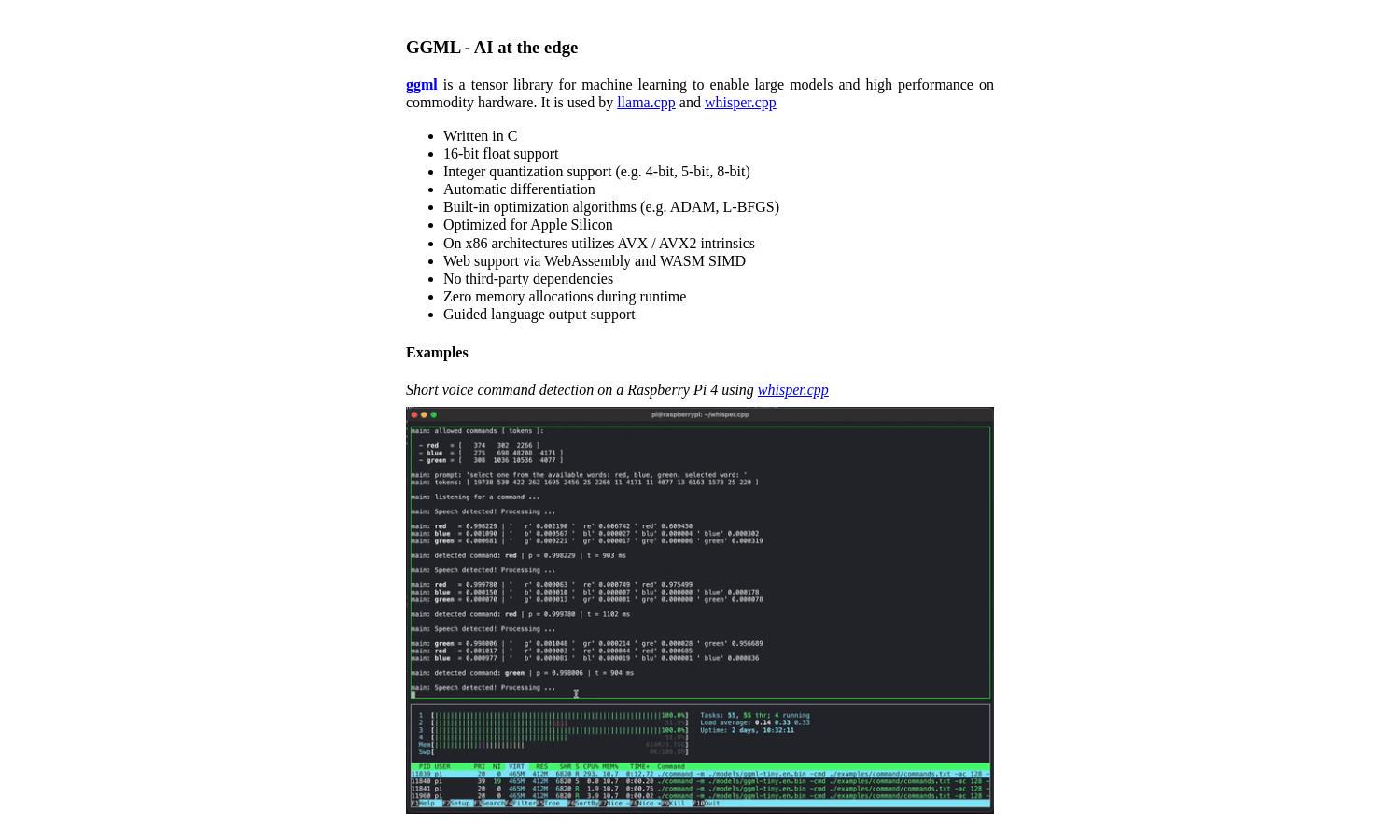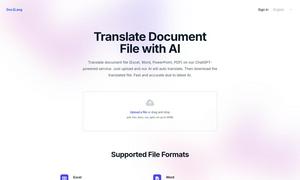ggml.ai

About ggml.ai
ggml.ai is a versatile tensor library designed for machine learning, targeting developers wanting high-performance models on everyday hardware. With features like integer quantization and automatic differentiation, users can easily build efficient applications, making ggml.ai an essential tool for innovators in AI and machine learning.
ggml.ai offers an open-source platform under the MIT license, allowing users to contribute freely. The project encourages financial support for contributors, enhancing its growth. Consider becoming a sponsor to experienced developers and unlock additional benefits while engaging with the vibrant ggml.ai community.
Designed with user experience in mind, ggml.ai features a streamlined interface that simplifies navigation and interactions. Its intuitive layout fosters a productive environment for developers while showcasing the platform’s powerful capabilities. Users can easily access essential tools, making ggml.ai an ideal choice for machine learning projects.
How ggml.ai works
To get started with ggml.ai, users first access the library through the website, where they can review documentation and installation steps. Upon onboarding, users can begin building machine learning models using the tensor library, taking advantage of features like automatic differentiation and integer quantization. The streamlined interface allows for easy navigation, enabling efficient development and showcasing the library's capabilities in various applications.
Key Features for ggml.ai
Cross-platform support
ggml.ai stands out with its remarkable cross-platform support, enabling efficient machine learning model inference on diverse devices. Users can seamlessly run applications on Mac, Windows, Linux, and more, making ggml.ai an invaluable tool for developers aiming for versatility in deployment and performance optimization.
Automatic differentiation
Automatic differentiation is a key feature of ggml.ai, enabling users to compute gradients effortlessly for complex models. This functionality simplifies the training process, making it easier to optimize machine learning algorithms and enhancing overall performance for developers working with various applications.
No third-party dependencies
ggml.ai's standout attribute is its design with no third-party dependencies, allowing for a lightweight and efficient programming experience. This feature not only optimizes performance but also simplifies integration, making it ideal for developers who prefer straightforward solutions in their machine learning projects.








